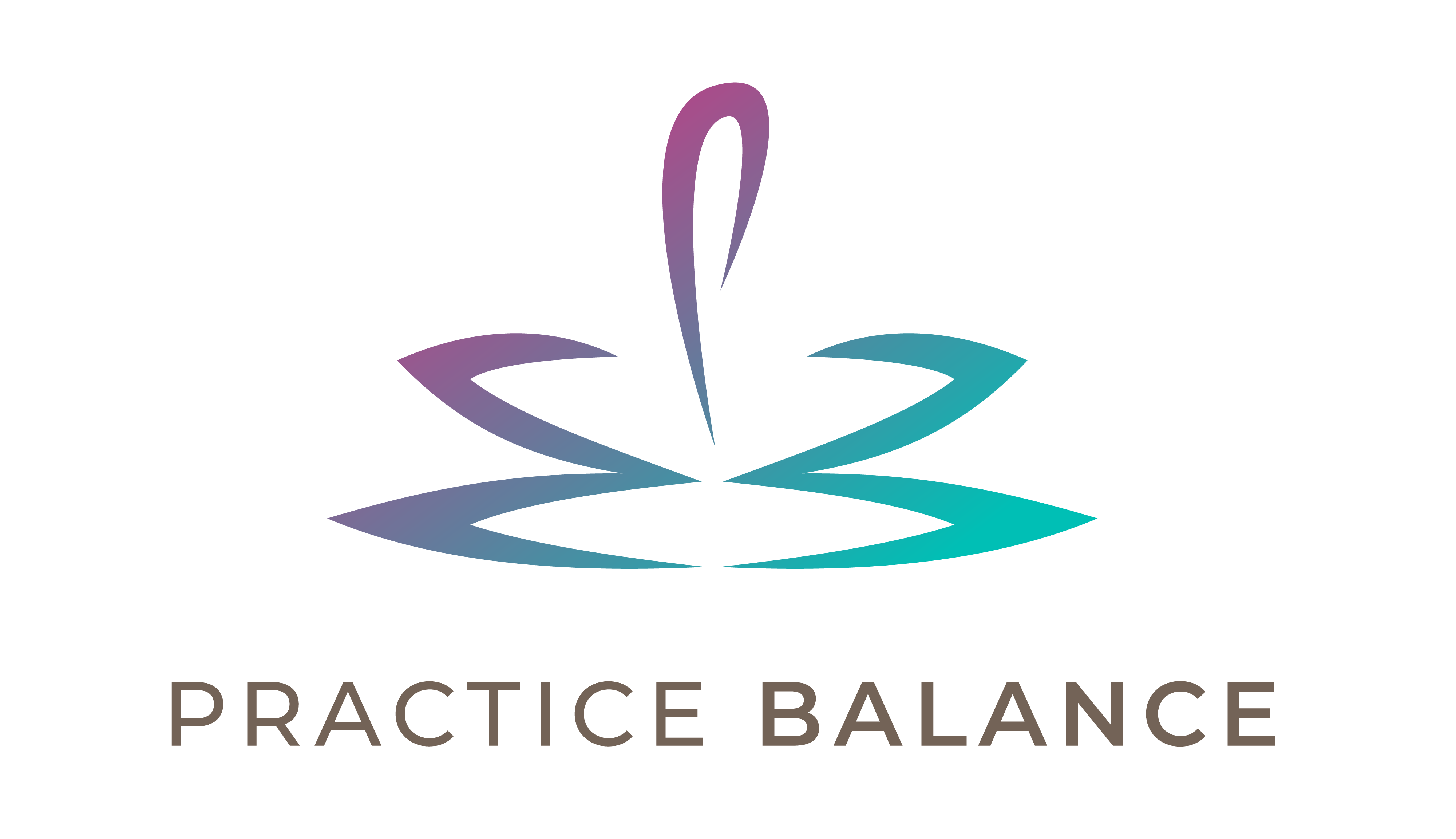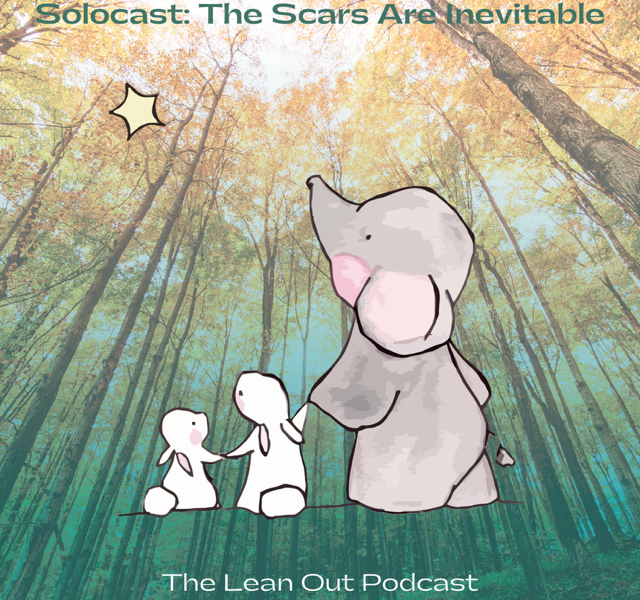[Note: Scroll to the bottom to hear this article in podcast form]
Once I figured out what was truly wrong with me as a burned out medical resident who was neglecting her own self-care, I had to undergo surgery to remove a very large pituitary tumor. They can send to me for a craniotomy in case they couldn’t get the tumor out through my nose, but luckily they were able to do the whole for our operation without drilling into my head, otherwise I would have even more scars.
Besides just a little nick on my nostril from the scope the neurosurgeons used for the case, I woke up with a two to three inch diagonal scar on my belly. That’s where they did a little “mini lipo” to make a fat graft that plugged the hole that they made in my brain.
Only this lipo wasn’t done by plastic surgeons. It was done by neurosurgery residents at the end of the case. And the closure honestly looked like it too, if you know what I mean. Let me tell you, that scar was problematic during my recovery. It became hard and red, and it stuck out from my belly like a little foreign object… not like part of me. It morphed from being sore to itchy.
Eventually, the hardness became a little smooth shelf. It finally integrated into my body. Thing is, I see this scar every single day still. Now, when I get dressed, it’s just right there. Right when you look down to put your pants on. It’s been more than 10 years, but it still serves as a reminder. It reminds me of my past mistakes and self care. It reminds me of the moments I learned of my diagnosis.
Of the mix of disbelief and fear, but also relief… and a real wash of self compassion and love. It reminds me how when it was all laid out on the table, I knew who really supported me. And it reminds me that I can undergo hard things and survive… and that I don’t ever want to not live deliberately.
I also have an example of an internal scar, one that I got when I was only seven years old. We had an exchange student who graduated from high school while she was living with us, and we all went to the graduation ceremony at the local high school. The ceremony was held on a football field, and when it was over, everyone rushed down from the bleachers and onto the field to give congratulatory, hugs and whatnot. Well, in that commotion, I got separated from my parents.
It was probably one of my earliest memories of sheer terror. I whirled around and I couldn’t see anyone I knew. I just saw a sea of people. There were people rushing around me, and all I remember was starting to cry. Eventually the crowd dissipated a bit, and our exchange student’s boyfriend actually found me and took me to my parents. It was super scary.
I think this scene still lives inside my brain to this day. I’ve been known to have anxiety dreams where I’m lost or left behind. Nowadays, it usually involves the latter. I think it’s more that getting separated from my pack of people stayed in my mind, and as I grew up, I longed desperately to fit in with the crowd. I desperately wanted people to like me as I grew from an adolescent to a young adult. I lived on the treadmill of achievement in order to receive praise. It wasn’t until the physical scar I mentioned above on my belly that I was able to separate my own self-worth from fitting in with the pack.
These are just a couple of my scar stories. I’m sure there are others.
What are yours? I know you have them.
Another question to ponder: Have you ever been the giver of scars, or just the receiver? If you’re a parent, you will give them, too; I’m sure of it.
I actually got the title of this article/podcast from a Balanced Bites Podcast episode I recently listened to. In short, the host of the show and her pediatrician wrote a book together about self care for mothers, and they were talking about all the modern parenting anxiety. Things parents worry about, like, “Will I scar them for life?”
They said, “Yes. Yes, you will.” (Probably not the way you’re thinking, but with some other random thing.) And then they said it:
The scars are inevitable
I know my parents did not mean for me to get lost that day on the football field, but it definitely affected me. I’m sure I’ve done things or said things offhand already that will live in my nine-year-olds a brain forever.
Bottom line: If you’re a parent, you need to give yourself grace. If you’re not a parent, you’re probably a spouse, or a daughter or son, or a good friend… and you also need grace. We mess up, and scars are formed.
So how can we coexist with these scars?
Radical Acceptance
Along the lines of grace comes radical acceptance. Radical acceptance is the practice of accepting circumstances beyond our control without judging them. You acknowledge the difficult emotions around a situation without pushing them away, which in turn relieves some of the suffering. It’s a simple idea, but it is not necessarily easy. One thing to note is that radical acceptance does not mean you agree or comply with the situation. It just is.
Mental Agility
In my upcoming confidence course, I have a lesson on mental agility. This concept also called emotional agility. This concept teaches us to ride the waves of our emotions instead of judging, trying to push them away, labeling them as good or bad or any other common practices that keep us stuck. When you practice mental agility, you’re able to separate yourself from what you’re feeling and de-identify, but still let the feelings be there. This is key for scar management.
Creating Meaning
Lastly, you have the ability to create your own meaning. Meaning is an interpretation of past events, like those surrounding a scar. You can see yourself as a victim, or you can see yourself as a hero in your own journey. This seems simplistic, but imagine if you can change your interpretation of something bad that happened to you to give it another meaning. There’s no reason you can’t do this.
I don’t remember exactly where I heard this story; it was possibly on Amy Morin’s podcast or in her book, 13 Things Mentally Strong People Don’t Do. She told the story of a little boy who had survived a horrific bus accident, though we had significant disabilities. His parents brought him to therapy, extremely concerned that the accident was basically going to “scar him for life” and cause PTSD and all sorts of badness. The parents were even more anxious about this than the child was. During his therapy exercises, he made a little picture book reenacting the accident that portrayed him as some sort of hero. The bus was a monster he had fought. This was the story he wanted to remember about his accident.
In summary
The scars are inevitable. We will get them, and we will give them. The upside to this whole thing is that if you have no scars, that means you’re not taking any risks. You’ve not lived or grown. No scars equals living in a bubble, and there’s nothing balanced, happy, or meaningful about that.
This whole scar thing reminds me of The Velveteen Rabbit. I recently read it to my daughter, and it’s the first book I remember reading as a kid that I was really moved by. I cried while I was reading it. And the other day, as we were reading together, we both of course cried… all because of this passage:
“What is real?” asked the Rabbit one day, when they were lying, side-by-side near the nursery fender before Nana came to tidy the room.
“Does it mean having things that buzz inside you or a stick out handle?”
“Real isn’t how you’re made,” said the Skin Horse. “It’s a thing that happens to you. When a child loves you for a long, long time, not just to play with, but really loves you, then you become real.”
“Does it hurt?” asked the Rabbit.
“Sometimes,” said the Skin Horse, for he was always truthful. “When you are real, you don’t mind being hurt.”
“Does it happen all at once, like being wound up?” He asked, “Or bit by bit?”
“It doesn’t happen all at once,” said the Skin Horse. You become, it takes a long time. That’s why it doesn’t happen often to people who break easily or have sharp edges or who have to be carefully kept. Generally, by the time you are real, most of your hair has been loved off and your eyes drop out and you get loose in the joints and very shabby. But these things don’t matter at all, because once you are real, you can’t be ugly. Except to people who don’t understand.”
Being real means having lived and having loved. And that means having scars.



 Lean Out Podcast: Purpose with Jordan Grumet
Lean Out Podcast: Purpose with Jordan Grumet
